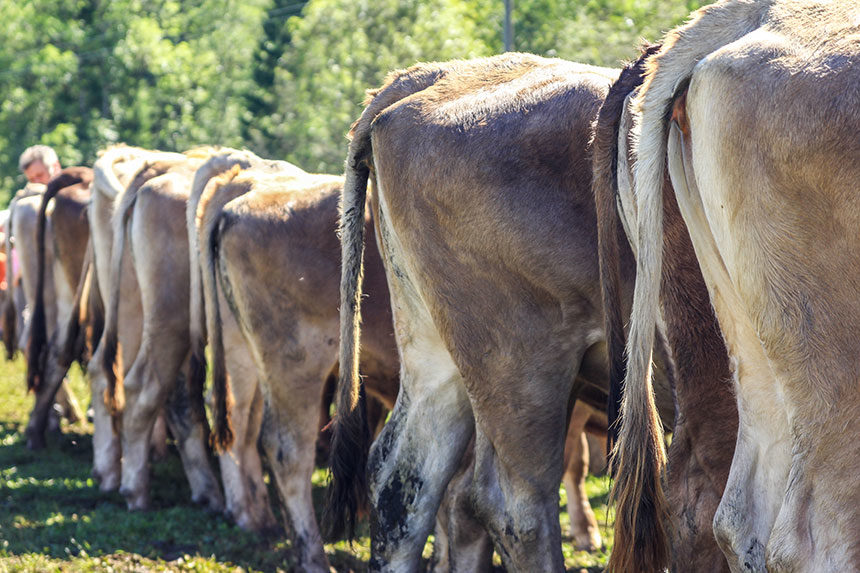Managing editor and logophile Andy Hollandbeck reveals the sometimes surprising roots of common English words and phrases. Remember: Etymology tells us where a word comes from, but not what it means today.
Despite the fact that tons of it is produced every day, I think it’s safe to say that most of us don’t interact with manure very often. That wasn’t necessarily the case in the days before the automobile, when horses provided the locomotion of choice and subsistence farming was widespread. In those days, some farmers spent entire days — from sunup to sundown — dealing with manure.
But probably not in the way you’re thinking.
The word manure traces back to the Latin words manus “hand” and operari “to work, operate.” In Medieval Latin, manu operare meant “to do work by hand” — a very general idea. This evolved into the Old French manovrer, which also took on a more specific meaning of working the land by hand — that is, cultivating the land, tilling the soil. Right around 1400, we start to find the borrowing manouren in English texts, which eventually became manure.
From this point up until the mid-16th century, manure was a verb, not a noun. A farmer with a large field might spend the entire day manuring the land to prepare for a new planting. But when a field is manured, a big part of the process is putting dung and compost into the soil as fertilizer. Over time, the word for tilling that dung into the land came to refer to the dung itself.
Today, you almost never see manure used as a verb.
BONUS: That Old French verb manovrer continued on its merry linguistic way on the continent. By the mid-18th century, the word (by then most often spelled manœuvrer because French) had also developed the meaning “to perform military or naval movements.” English re-borrowed the word at about that time as both a noun and a verb.
In British and Australian English, it’s still usually manoeuvre, but thanks to Noah Webster, in the States it’s the word maneuver, a close relative of manure.
Featured image: Shutterstock
Become a Saturday Evening Post member and enjoy unlimited access. Subscribe now




Comments
I didn’t know that! Now the song “Shaving Cream” is going through my head!
Harry Truman had been a farmer before his presidency. He was said to have used ‘earthy, farmer style talk’. Some folk would even say crude and rude. Bess Truman, (the Boss) tried to get Harry to tidy up his vocabulary. Harry was supposed to have replied, “I did clean it up Bess,…… I say manure, instead of bull shit. ”
Apologies for using some old story that was not my own that I heard and tickled my funny bone, years ago.
Oh yes, I am from Missouri, Harry Truman’s state.
What is going on around here with cattle rear ends at the top? It makes me uncomfortable hearing about manure of all things. And the comments. Who are these people? What kind of a conversation is this?
What a wonderful word, manure, and such a crucial function it performs (as fertilizer) when harnessed and used correctly. I never thought about the close relationship manure had with ‘maneuver’, yet really nothing at all. There has to be a way to put these two together, somehow. Oh I know!
“Bob, I’m proud of how you secured the American Fertilizer Company account with your maneuvering skills on the manure with Carol and Ted; how working with our company will be a win-win for both of us in these treacherous, inflationary times. Being well prepared and charming is exactly what I needed. Your light use of the Eternity was a nice touch.” “Thank you. They’d reviewed the previous materials and this luncheon was just to essentially clinch it.” “You got them to sign everywhere. Now all I have to do is pass this on to Alice, and we’ll be ready to make it official official for December 1st. A toast to you I say! How about a martini?! Shaken or stirred?” “Neither sir, thank you, but I’ll have a Martinelli’s!” “Oh I forgot, you don’t…” “You are correct sir, which is why I keep some of the small bottles in my drawer for such occasions. Get out the glasses, ice and I’ll be right back.”